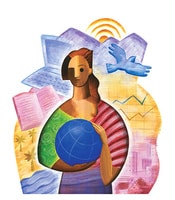Agora content is divided into two general categories: “Text” and “multimedia.” In the Agora text section, you will have access to a collection of articles, translations, essays, and other writings by professors, graduates, students, and other thinkers, academics, researchers, and artists.
